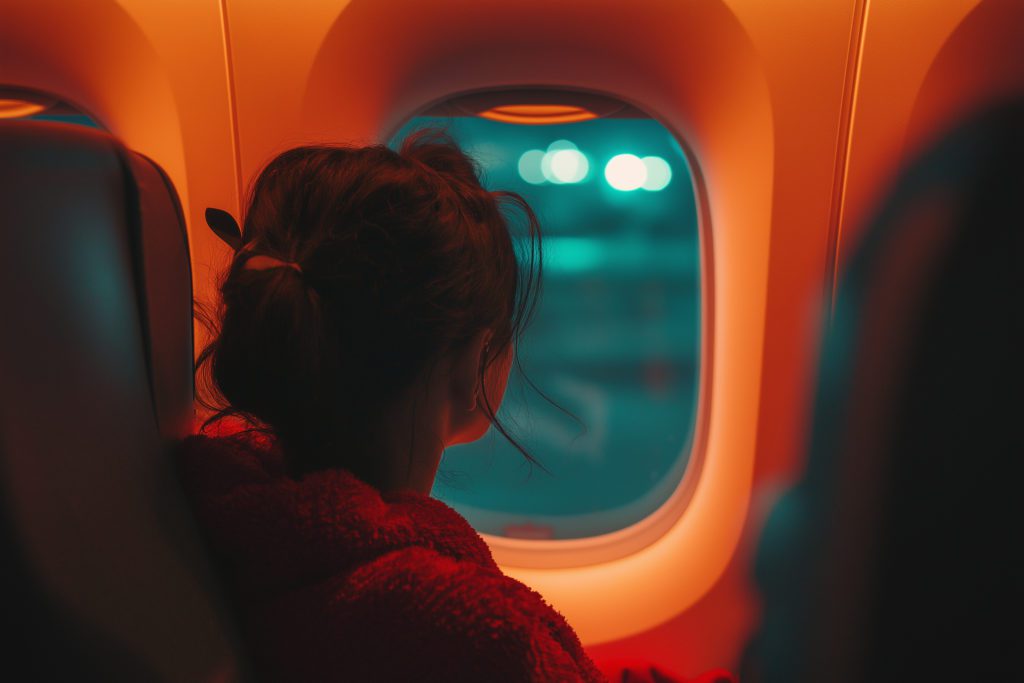
Traveling Together: Coping with Time Zone Changes and Jet Lag as a Couple
Jet lag is a common concern when traveling across time zones, and as a couple, it can make you both irritated. Explore tips for traveling together.

When in a relationship, many things can test the limits of your bond, such as moving in together for the first time, meeting the family, and experiencing each other when sleep-deprived.
Traveling somewhere together can be an exciting time, but many couples find that the idea of traveling together is more appealing than the actual act. On trips, it’s all too easy for tensions to rise and arguing to commence, and it often stems from a lack of sleep. For those traveling across time zones, maintaining a good mood can be even harder when you can’t seem to shake your jet lag.
All hope is not lost, though; there are tips for managing jet lag together so that you can enjoy your trip.
What is Jet Lag?
Let’s quickly review what jet lag is—when you know what it is, you know how to prevent it.
Jet lag is a type of circadian rhythm sleep disorder in which your internal circadian clock is out of sync with the time zone you’re in and the light and dark cues that your body is being given. It generally occurs when you travel between time zones, with greater shifts causing a longer-lasting period of jet lag.
Some of the symptoms of jet lag include insomnia, fatigue, digestive problems, and irritability—it’s this last symptom that can make it harder to cohabitate with a partner, especially if they’re feeling just as irritable from sleep deprivation.
What Factors Contribute To Jet Lag?
When planning your trip together, it’s important to take into account what factors influence the likelihood of jet lag. If you plan accordingly, you may be able to limit these factors and increase your odds of making it to your destination without needing a few days to recuperate.
Some common contributors to jet lag include:
- Trip details: How far are you traveling? How many time zones will you cross? Which direction will you travel (east to west or west to east)? How long will you be at your destination? The answers to these questions can influence whether or not you’re likely to experience jet lag and how severe it may be.
- Arrival time: The light intensity when you land may shift you in the wrong direction. A study on eastward travel found that midday arrivals saw fewer symptoms of jet lag than morning arrivals.
- Poor sleep before travel: Whether it’s from excitement or travel anxiety (or both), poor sleep leading up to your trip can make you more likely to get jet lag.
- Age: Studies suggest that age can influence your risk of jet lag, but the results are conflicting. One study found that those over 60 had a harder time recovering from jet lag due to circadian changes, while another reported that jet lag is worse in younger people.
Preventing Jet Lag When Traveling As A Couple
There are steps you can take to prevent jet lag, but two key factors must be obeyed: you have to properly prepare for your trip, and you both need to take the necessary precautions. You’re in this together, every step of the way, and to ensure a smoother trip, you both need to play this role.
Prepare Your Body
When you’re getting ready for a trip, you may find yourself having a hard time sleeping, whether because you’re excited about what you’ll do on your trip or because you’re nervous about the traveling you need to do to get to your destination.
However, the time leading up to your trip is crucial for your sleep, so it’s time to buckle down on your good sleeping habits.
Not only do you need to ensure that you get enough sleep so you start your vacation well-rested, but you should also start adjusting your body to the new time zone. Big jumps can be hard for your body to adjust to, so if you can limit the time zone shift by any amount, you won’t have to contend with as much jet lag when you land.
In the days leading up to your trip, adjust your sleep schedule time, inching it towards the time at your destination.
To see the most success with this, be sure that both you and your partner do it. It’s hard enough to train your body to go to bed earlier, and it’s even harder if your partner is still moving around and making noise because they’re not following the same schedule. Even more, you’ll know that they’ll get hit with jet lag hard when you get to your vacation spot.
Fly With Jet Lag In Mind
Don’t think of jet lag as a gamble that you may have to deal with when you land. Instead, as a couple, hold each other accountable for taking certain precautions while on your flight, such as:
- Staying hydrated to counteract the dehydration seen with flying.
- Eating healthy and light to reduce the risk of digestive issues.
- Limiting alcohol and caffeine—they can keep you awake even if you need to be asleep for the new time zone.
- Getting moving to avoid stiffness.
Taking these precautions can help limit your odds of jet lag.
Get Recalibrated Quickly
Once you’re in your travel destination, the key to overcoming jet lag is to quickly get your body attuned to the new schedule. You can do this by using light to your advantage. Light signals to your body that it’s time to wake up, so when it’s morning, get outside. To add on, combine your time outdoors with some exercise to further recalibrate your circadian rhythm.
Additionally, be careful when napping. Avoid long naps; instead, if you need to nap, keep it to 30 minutes and at least 8 hours before you need to be in bed. You and your partner may need to hold each other accountable here, but having someone who shares your mindset can help you both power through. Remember, bypassing a long nap is crucial for getting back on schedule!
Beat Jet Lag Together
Traveling with your partner is an exciting time where you can explore new locations or even revisit tried and true favorites with someone you care for by your side. There’s a certain level of magic in sharing these experiences with your partner, but to ensure you finish your trip happy and not irritated with each other, it’s crucial that you get enough sleep—fighting off jet lag is the best way to ensure you remain in good moods.
By preparing for your trip, taking the right precautions on your flight, and quickly jumping into your new time zone, you can get your circadian rhythm back on track, letting you attack each day with the energy and good mood you want while on vacation.

Written by
Jessica G
Medical writer freelancer who has written hundreds of articles on varying topics. Masters of Engineering degree in Biomedical Engineering.
Download Pillow
Get help
Press & News
Legal
Connect
X (Twitter)
Company
Copyright © Neybox Digital Ltd.



